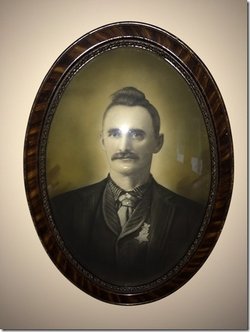Date of Birth: December 28, 1822
Zodiac Sign: Capricorn
Date of Death: February 7, 1905
Biography
William Rounseville Alger was a renowned American author and clergyman, best known for his spiritual and philosophical writings in the 19th century. Born in Freetown, Massachusetts, Alger pursued a theological education at Harvard Divinity School, where he graduated in 1847. His works often explored themes of religion, spirituality, and morality, reflecting his deep engagement with theological questions and human ethics. Alger served as a Unitarian minister in various congregations, including those in Roxbury, Massachusetts, Boston, and New York City. His most famous work, “The Poetry of the Orient,” published in 1865, compiled and interpreted Eastern religious poetry for Western readers, showcasing his interest in cross-cultural spiritual insights. Throughout his career, Alger was an advocate for social reforms and was actively involved in the abolitionist movement. His sermons and writings contributed significantly to the intellectual and spiritual discourse of his time.
5 Interesting Facts about William R. Alger
1. Alger’s book “A Critical History of the Doctrine of a Future Life” (1864) was one of the first comprehensive studies on the topic of immortality, drawing from various religious traditions.
2. He was an early advocate for the inclusion of women in the ministry, reflecting his progressive views on gender equality.
3. Alger served as the minister of the Bulfinch Street Church in Boston, where he was known for his eloquent and thought-provoking sermons.
4. He was involved in the Transcendentalist movement and maintained friendships with notable figures such as Ralph Waldo Emerson and Henry David Thoreau.
5. Alger’s interest in Eastern philosophy and poetry was ahead of his time, influencing later Western appreciation of Eastern spirituality.
5 Most Interesting Quotes from William R. Alger
1. “The wealth of a man is the number of things which he loves and blesses, which he is loved and blessed by.”
2. “Grief drives men into habits of serious reflection, sharpens the understanding, and softens the heart.”
3. “The line between failure and success is so fine that we scarcely know when we pass it: so fine that we are often on the line and do not know it.”
4. “He who has no vision of eternity has no hold on time.”
5. “The true way to conquer evil is not to fight it, but to understand it.”
Highest Net Worth Achieved
William R. Alger did not achieve notable financial wealth; his highest net worth is not documented but his contributions to literature and theology were invaluable.
Children
William R. Alger and his wife, Anne Langdon Alger, had several children. However, detailed records of their names and lives are sparse.
Relevant Links
1. [William R. Alger on Wikipedia](https://en.wikipedia.org/wiki/William_Rounseville_Alger
3. [Works by William R. Alger at Project Gutenberg](https://www.gutenberg.org/ebooks/author/10720

